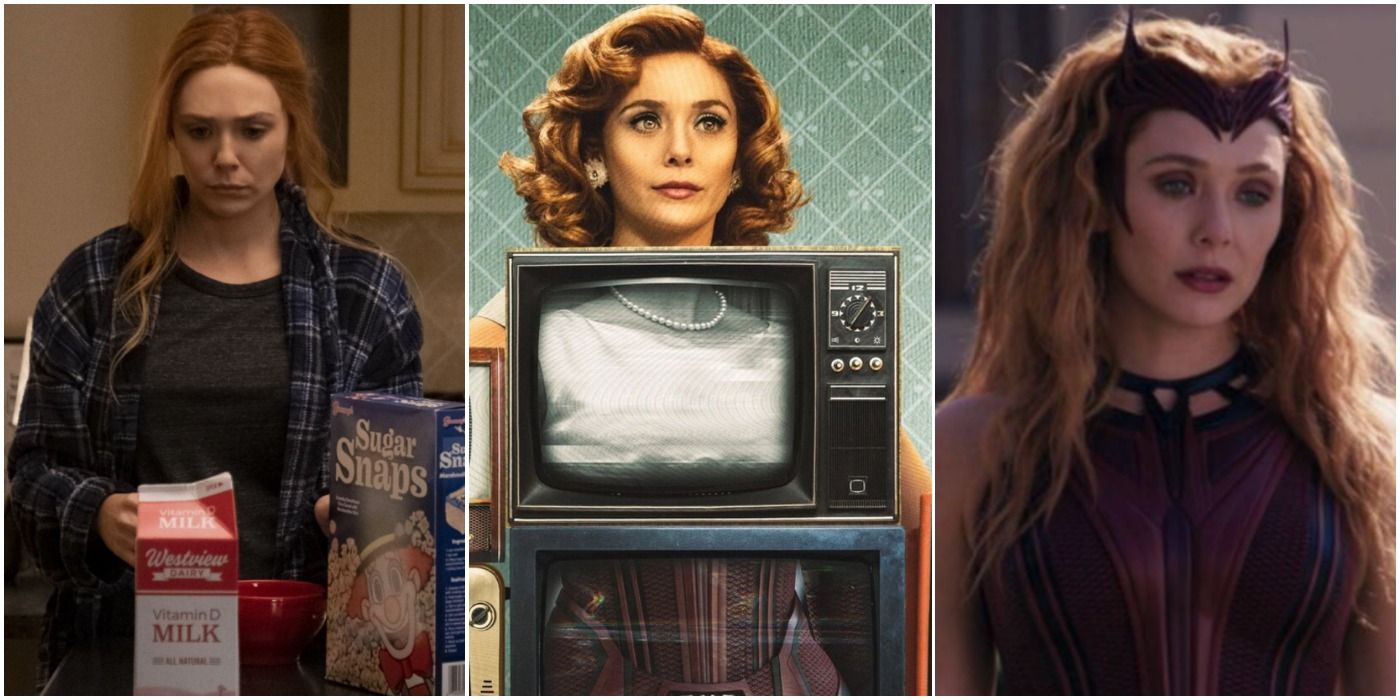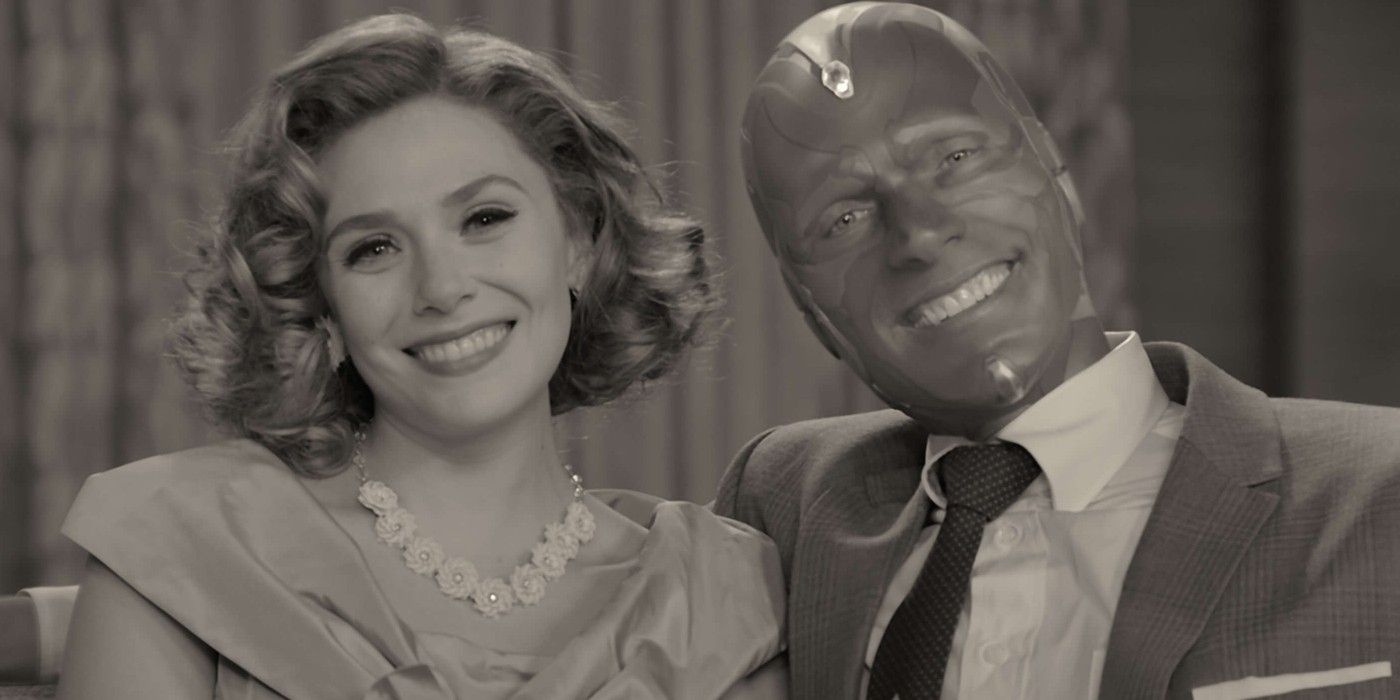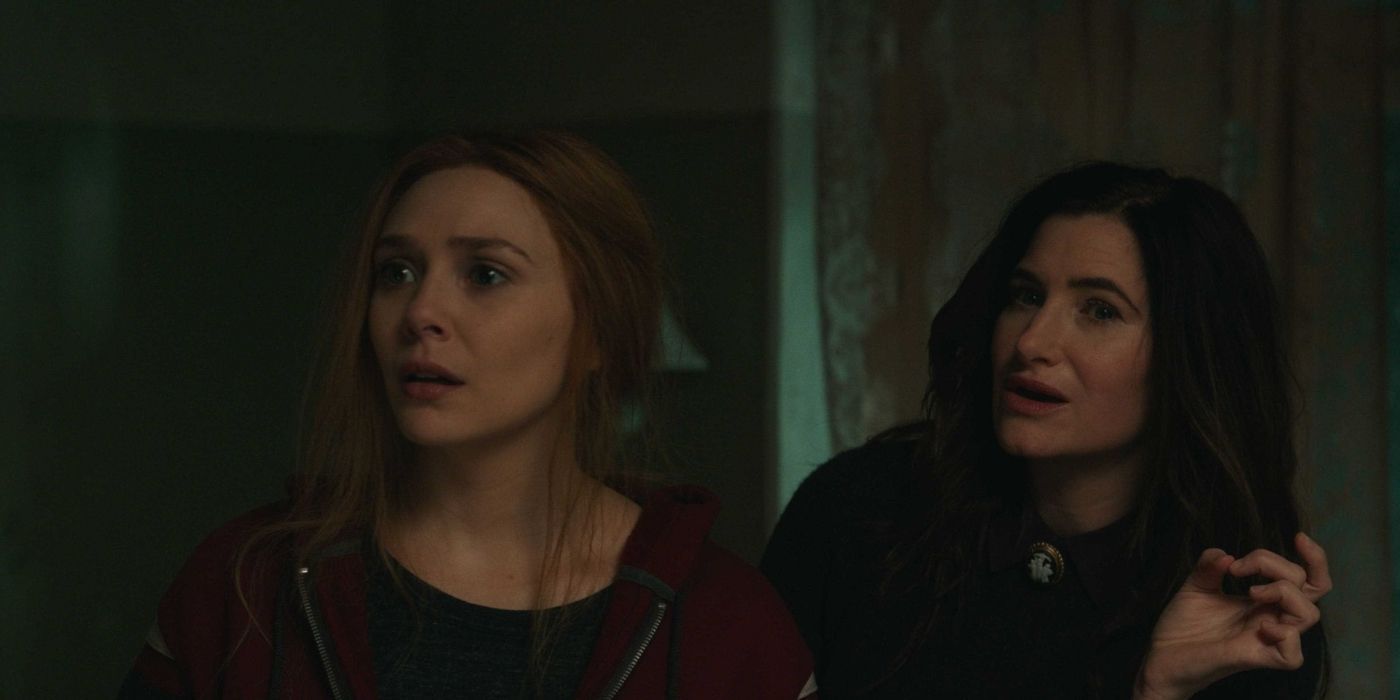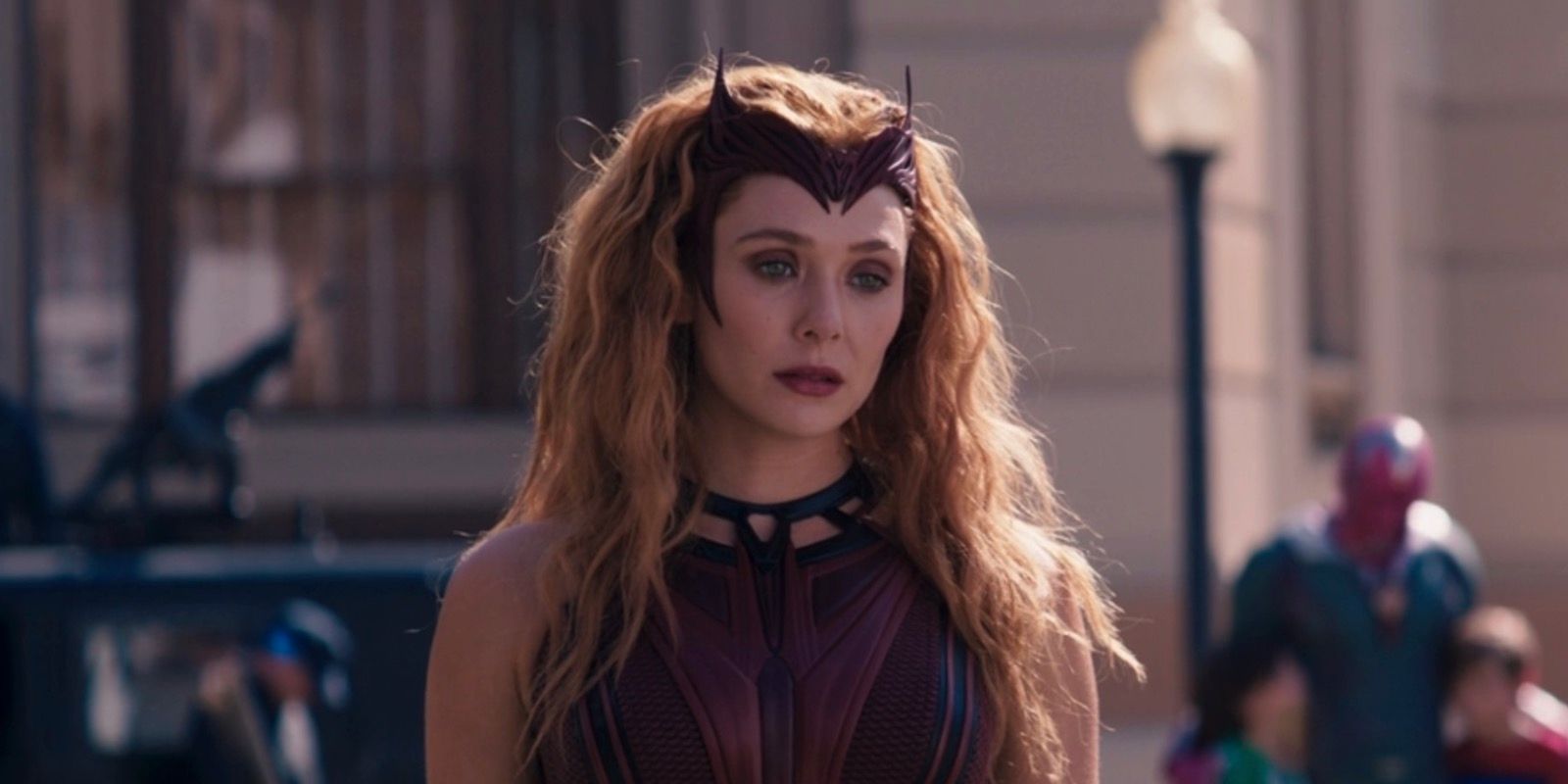
Marvel fans might have been expecting a lot of superhero antics layered in the world of sitcoms with WandaVision. What they got instead was an exploration of grief through the lens of someone with incredible powers. Wanda Maximoff has always been one of the most powerful Avengers since she joined the team in Avengers: Age Of Ultron. Her power has also, unfortunately, been uneven. Grief always seems to unleash her true abilities.
When her brother died, Wanda let out a burst of power that destroyed all of Ultron's minions around her. In Avengers: Infinity War, forced to remove Vision's mind stone, she used her power to do it while holding off Thanos. When she returned from the Snap in Avengers: Endgame, her grief even allowed her to take on Thanos alone for a moment. All of these moments were fleeting, while WandaVision allowed the character to truly experience her grief instead of move on to the next fight. She spent much of the series in denial about the extent of her grief until the finale brought her face to face with it.
RELATED: WandaVision Uncovered One Potential Problem With Phase 4 Of The MCU

Much of what transpired in Westview to bring Wanda and Vision into their sitcom world wasn't fully revealed until episode eight. "Previously On" took the audience on a ride through some of Wanda's most tragic moments. Up until then, Wanda was fully in denial mode. The most accepted model of grief follows the steps of denial, anger, bargaining, depression and acceptance. On some level, she knew that her world was fake. She knew she was able to rewind moments and control events, but she couldn't let go. That left her stuck at the denial stage no matter how many other steps she seemed to take.
That idea was most present in her creating the sitcom world itself, but that's not all. She also expelled anyone who got in her way, like Monica Rambeau. Wanda ensured her version of reality was the only one, like making a Halloween costume the only thing available in Vision's closet for the "Halloween Spooktacular." At every opportunity, Wanda positioned herself to keep that denial in place. In her mind, a happy ending was the only answer to her sadness.
Wanda's denial also revealed itself when anyone "awoke" from her control. When Monica explained her experience to SWORD, she described a wave of grief crashing down on her. Norm detailed Wanda's voice in his head all the time to Vision. Even Darcy, though she didn't explain it, called the experience of taking part in the sitcom "horrible."

The moment Agatha Harkness revealed herself as a witch was the moment things started to change for Wanda. Though she seemed on the verge of accepting her loss when her son's lost their dog, it's Agatha's presence as her true self that propelled Wanda toward acceptance. From Wanda's point of view, Agatha was the story's villain. Agatha, however, did more for Wanda in the way of therapy than anyone else had in Wanda's entire life.
When Agatha took Wanda on a literal walk down memory lane, Wanda was forced to confront some of the most traumatic moments in her life. Losing her parents in a missile strike, volunteering for Hydra's experiments, and losing her brother when joining the Avengers were all traumatic experiences that shaped her. Since donning her red costumes and fighting bad guys, Wanda had largely avoided the repercussions of those traumas. Being reminded of them only made her sad and anxious, until Agatha prodded further at what happened after Wanda also lost Vision.
When Agatha reminded Wanda that she "wanted him back" after losing Vision, Wanda became more determined to face her own past. She got to see exactly how the events of Westview truly occurred as a result. Her denial was still in full force, however, until Agatha made her face the most recent iteration of her grief.

The moment that Agatha woke up the residents of Westview, it forced Wanda to face the reality of her grief, whether she wanted to or not. The residents informed her that they could feel how she felt. They were also terrified, having her own nightmares when they slept. The woman cast in the role of "Dottie" even begged for the chance to be with her little girl. Even in her denial, Wanda had been protecting the children of town from her manipulations.
Up until that moment, Wanda tricked herself into believing that the sitcom scenarios that gave her comfort were also giving everyone else comfort. She relied on the situational comedies of her childhood to present a happy ending and safety. For everyone else, however, Wanda's happy ending trapped them in her denial. In agreeing to set the Westview residents free, Wanda accepted her own grief. She effectively took her nightmares and the wave of sadness back. If she couldn't subject herself to the grief, how could she turn it on anyone else?
Fighting Agatha might have given Wanda a temporary outlet for all of the rage she was feeling as well. Once she stopped her, it was time for Wanda to truly let go of her past. She did that by tucking her sons into bed and saying goodbye to the version of Vision she created. Without these events, Wanda wouldn't have been able to move on and begin to study her own magic. She wouldn't have been able to accept her path as the Scarlet Witch. The end credits scene of the WandaVision finale showed that Wanda was well on her way to doing just that, setting her up as even more of a powerhouse in the MCU's future.

